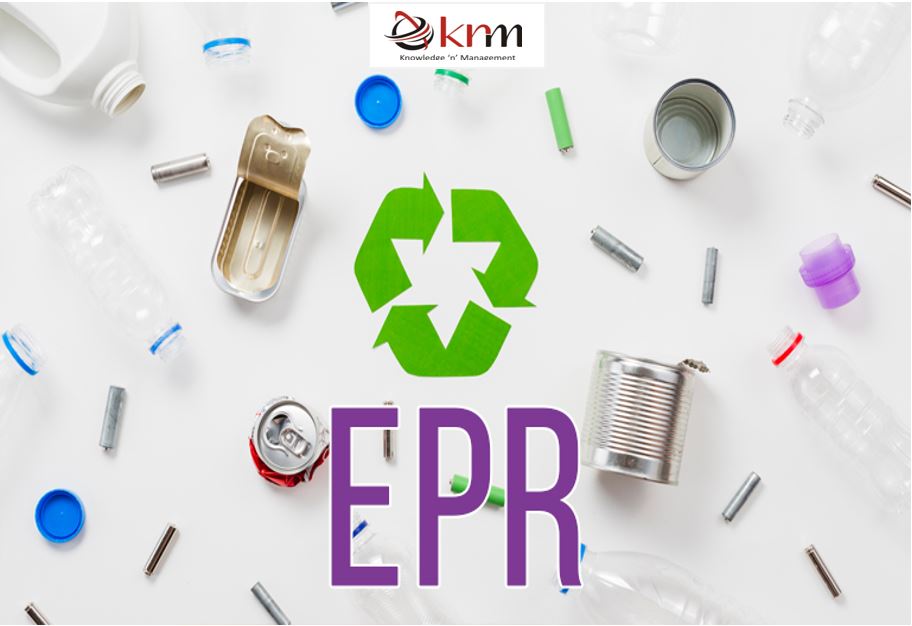EPR- Definition
EPR stands for Extended Producer Responsibility. It is an Authorization which is issued by CPCB (Central Pollution Control Board). The Ministry of Environment, Forests, and Climate Change issued E-Waste (Management) Rules 2022 on November 2, 2022. This will go into effect on April 1, 2023. These regulations shall apply to all manufacturers, producers, refurbishers, dismantlers, and recyclers engaged in the manufacture, sale, transfer, purchase, refurbishment, dismantling, recycling, and processing of e-waste or electrical and electronic equipment listed in Schedule I.
Originality of EPR
The concept of EPR originated in Europe in the 1990s, where it was seen as a way to incentivize producers to design products with end-of-life considerations in mind. The basic idea is that producers should be held accountable for the environmental impact of their products and that they should take responsibility for the disposal and recycling of their products. This approach helps to ensure that the costs of waste management are internalized by producers rather than externalized onto taxpayers and society at large.
Entry in India
In India, Extended Producer Responsibility (EPR) was first introduced in the e-waste (Management and Handling) Rules, 2011, and subsequently, it has been included in other waste management regulations as well. The EPR principle is based on the polluter pays principle and holds the producers and brand owners responsible for managing the end-of-life disposal of their products.
Similarly, the Plastic Waste Management Rules, 2016, require the producers, importers, and brand owners of plastic products to establish a system for the collection of post-consumer plastic waste and its environmentally sound disposal. The producers are required to collect and recycle a certain percentage of the plastic waste generated, based on the quantity of plastic produced or imported by them. The CPCB is also responsible for the implementation of the plastic waste Rules.
Responsibility of Producers under EPR
According to the recently announced Plastic Waste Management (Amendment) Rules, 2022, producers, importers, brand owners, and plastic waste processors (involved in recycling plastic waste or involved in waste to energy, waste to oil, and industrial composting) are the identified entities that require EPR authorization.
The duties of Producers, Importers, Brand owners (PIBOs) who use plastic containers consist of
- Registration on the centralized EPR portal developed by CPCB.
- Submission of EPR Action Plan for Plastic Waste Management
- Recycling of plastic waste
- Use of Recycled content in production
- Reuse of plastic in the manufacturing process
- End-of-life disposal
- Collection and recovery of the plastics (with an option of engaging PROs for the purpose)
- Submitting annual returns to the CPCB
- Provide proof of certificates (Plastic credits)
Documents Required to obtain EPR authorization
Although the EPR Authorization procedure is the same for manufacturers of plastic and electronic goods, the documentation needed may change depending on the type of unit that needs to be authorized. The common documents needed at the moment of authorization are, however, as follows.
- Identity proof (PAN Card)
- Details of the signatory
- Contact details
- Address proof
- BIS License
- Details of compliance with RoHS
- Certificate of incorporation of the manufacturer/importer
- EPR Action Plan
- Estimation of E-waste/ Plastic Waste
- Product details
- Copy of agreement entered with recyclers, storage and disposal dealers, collection centers, etc.
- Details of toll-free number and website
- Any other document as may be required
Products Identified
The two major product categories that require EPR Authorization are as follows
- Information Technology and Telecommunication equipment
- Consumer Electrical and Electronics
Benefits of EPR policy
- EPR encourages e-waste (Electrical and electronics refuse) recycling and reuse, which lowers the cost of raw materials for producers and manufacturers.
- EPR guarantees that e-waste is managed in an environmentally friendly way, thereby reducing the negative effects of e-waste on the environment.
- EPR Authorization from Central Pollution Control Board (CPCB) enhances the goodwill of the product and brand reputation in the market.
- EPR promotes sustainable development, hence lowers the waste generation and misuse of the natural resources.
Conclusion
In conclusion, Extended Producer Responsibility is a policy approach that can help to promote sustainable development by incentivizing producers to take responsibility for the entire life cycle of their products. By internalizing the costs of waste management and creating incentives for sustainable product design, EPR policies can help to reduce waste and promote a more circular economy. As the world faces increasing challenges related to waste and sustainability, EPR is likely to play an increasingly important role in waste management and environmental policy.



